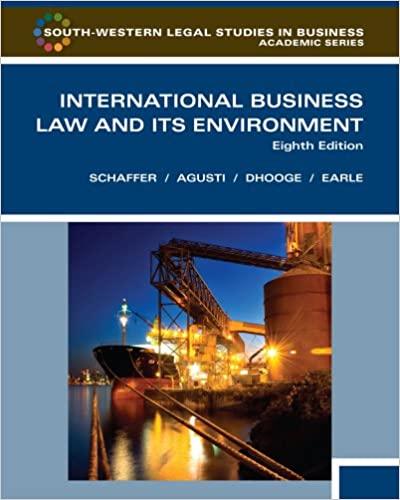Question
1. The journalist privilege protects confidential sources of information for reporters in traditional news media (newspapers, TV networks, radio). Different Federal courts have articulated different
1. The journalist privilege protects confidential sources of information for reporters in traditional news media (newspapers, TV networks, radio). Different Federal courts have articulated different criteria as to what activities constitute journalism. The 9th Circuit position has determined that what makes journalism is the content not the format and that the critical question for deciding who can may invoke the journalist privilege is whether the person is gathering news for dissemination to the public. The 3rd Circuit position has concluded that a journalist is someone who is engaged in news gathering and who possessed the intent at the beginning of the news gathering process to disseminate the information to the public. The 2nd Circuit opined that an important factor is collecting information for the purpose of independent reporting and commentary. TWO QUESTIONS TO ANSWER:
1.Are "on-line" journalists entitled to the protections of the journalist privilege?
2.Explain why or why not?
2.Privacy is the right to control ________to information about ourselves.
3.True or False. According to the Wall Street Journal video, Next-Level Surveillance: China Embraces Facial Recognition, a justification for the extensive use of facial recognition by authorities in China is that it helps police find missing persons in addition to identifying criminals.
True
False
4.Access to information is a recognized basic human right.
True
False
Step by Step Solution
There are 3 Steps involved in it
Step: 1

Get Instant Access to Expert-Tailored Solutions
See step-by-step solutions with expert insights and AI powered tools for academic success
Step: 2

Step: 3

Ace Your Homework with AI
Get the answers you need in no time with our AI-driven, step-by-step assistance
Get Started


